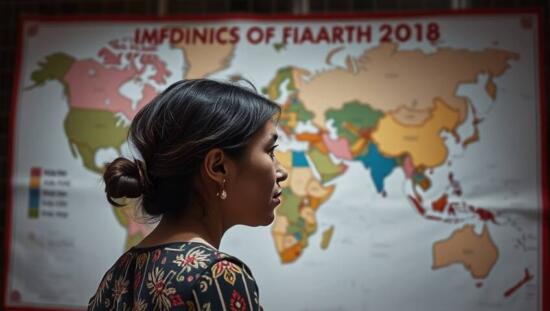The Foreign Office has not yet achieved the goals of its feminist foreign policy guidelines, adopted in March 2023, within its own walls. The Welt am Sonntag reports this.
Back then, the goal was formulated to allocate 85 percent of the new funding until the end of the legislative period to “gender-sensitive” projects, i.e., those that take into account the needs of all genders equally. As of early December, only 65 percent have been achieved, according to the Foreign Office.
In addition, the guidelines define the allocation of eight percent of the funding to projects for which gender equality is the primary goal – so far, it’s only 4.5 percent. The Foreign Office expects an increase at the end of the year due to further payments. Niklas Balbon, a researcher at the Global Public Policy Institute in Berlin, examines the implementation of feminist foreign policy and sees only a limited effect in this measure: “It’s very easy to write funding applications that prioritize women, but in the actual implementation, the topic is not taken seriously enough.”
Another goal of Baerbock’s feminist foreign policy is women’s promotion within the office. Numbers reported by the Welt am Sonntag show initial progress, but there is still a long way to go to achieve parity. As of mid-2021, the percentage of women in leadership positions in the higher service at home and abroad was 23.5 percent, three years later it’s 31.8 percent. At the time, every fifth overseas mission was led by a woman, now it’s every third one.
The office is putting in tremendous effort: The selection committee for applicants is being trained to recognize “unconscious biases,” as the Foreign Office puts it. Also, the selection processes check the “diversity competencies” of the applicants and provide leadership staff with seminars on the topic of gender equality. Employees who have been affected by discrimination, sexual harassment, or mobbing at the workplace can now turn to a special complaints department since 2022.
It’s unclear how the structures will continue under a new government. “Even for the Union, the specific needs of women and girls, equal rights, access to resources, and representation are crucial goals,” said Annette Widmann-Mauz (CDU), head of the Women’s Union, reporting for her faction on feminist foreign policy in the Foreign Affairs Committee and a founding member of the Parliamentary Group for Feminist Foreign Policy. “These would be achieved only with a pragmatic, solution-oriented foreign policy, without an ideological exaggeration.





